Published on 18.07.2025
Helmholtz Imaging Newsletter Issue No. 22
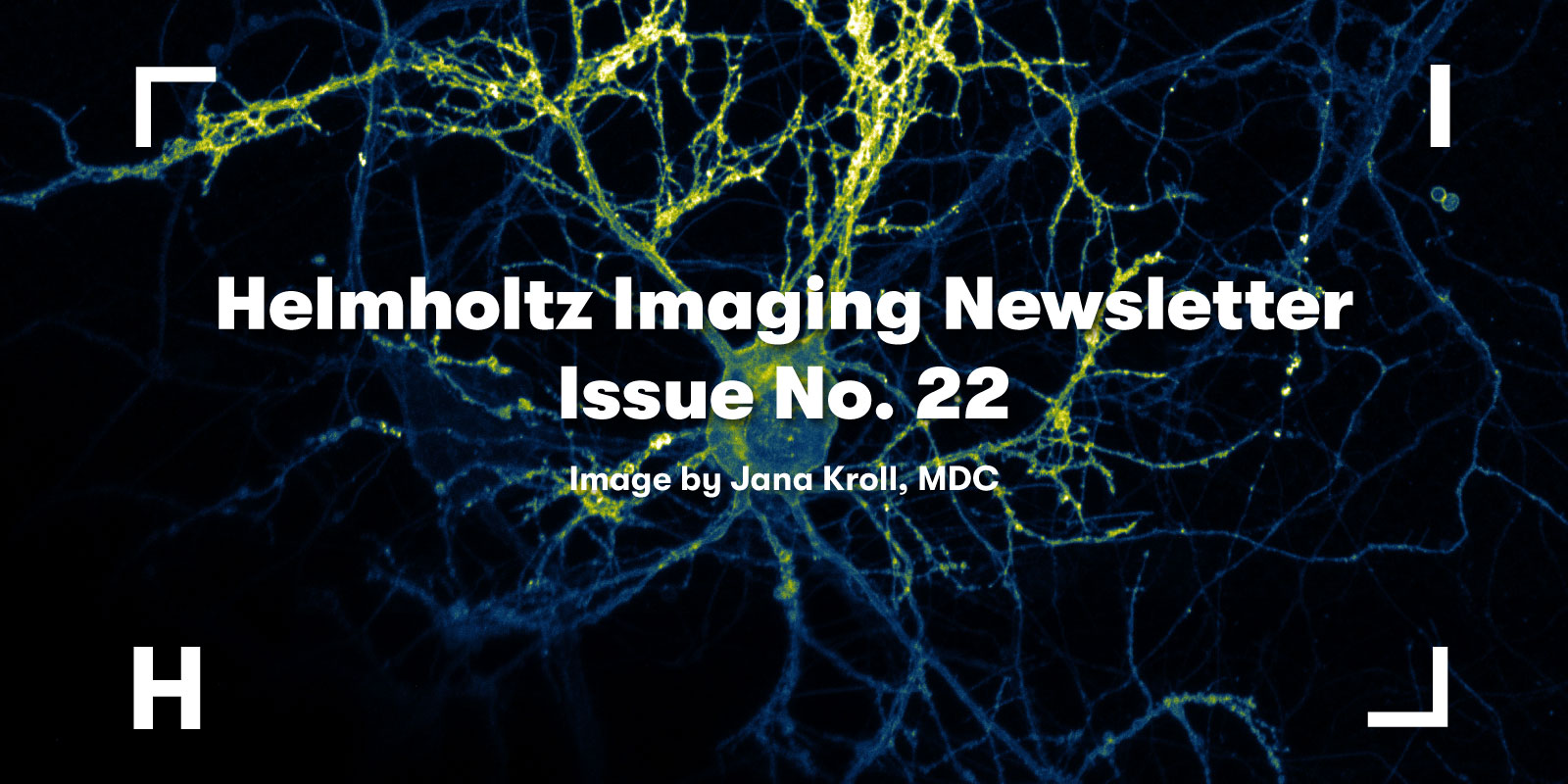
Dear Imaging Enthusiast,
The past months have been full of energy, exchange, and breakthroughs across the Helmholtz Imaging community. In this issue, we’re recapping the highlights from our Helmholtz Imaging Conference 2025, showcasing the winners of this year’s Best Scientific Image Contest, and inviting you to submit your ideas to the Project Call 2025.
You’ll also find updates on new tools and platforms, award-winning research, and international collaborations, plus familiar categories like partner updates, as well as job and funding opportunities.
Here’s what’s inside this issue:
- Helmholtz Imaging Conference 2025 Recap: A look back at three inspiring days in Potsdam – plus the photo gallery!
- Zebrafish Workshop: Ahead of the conference, researchers gathered to share tools and approaches for zebrafish image and video analysis.
- Best Scientific Image Contest 2025: Discover this year’s winning images – from cells to stars.
- Helmholtz Imaging Project Call 2025: Submit your project proposal by July 30!
- Helmholtz Model Zoo: Share and reuse AI models across Helmholtz. Become an early tester and help shape this collaborative platform.
- OMERO for Helmholtz: Manage and share your image data with this new cloud resource.
- Annika Reinke wins Hector Foundation Prize: Celebrating exceptional work on trustworthy AI in image analysis.
- 2nd Place in Kaggle Challenge: DKFZ team shines in global Cryo-ET competition.
- New Study on Brain Shape & Genetics: DNA influences brain geometry – not just size.
- In Focus: Insights from Manuel Guizar-Sicairos on imaging across borders.
- Register for TEACH 2025: Join the Helmholtz education community in Berlin this fall.
- 30 Years, 30 Stories: Celebrating Helmholtz’ anniversary
- Meet Us: Say hello to Helmholtz Imaging team members at upcoming conferences in Geesthacht, Hamburg, and Daejeon, Republic of Korea.
- Partner Updates: Discover the latest from HMC, HIDA and Helmholtz AI.
- Opportunities: Explore new funding calls, external events, recent publications and job postings.
We hope this issue sparks new ideas, collaborations, and conversations. As always, feel free to share your imaging-related news and events with us at katharina.kriegel@helmholtz-imaging.de.
Happy reading!
Your Helmholtz Imaging team
***
A personal note from us:
Do you have an imaging challenge, no matter how big or small? We’re here to help you, free of charge. Contact us via our support hub.
Also, if you haven’t yet, join our network of experts, modalities, instruments, and facilities! CONNECT with us.
Interested in receiving our newsletter directly in your mailbox? Subscribe here.
***
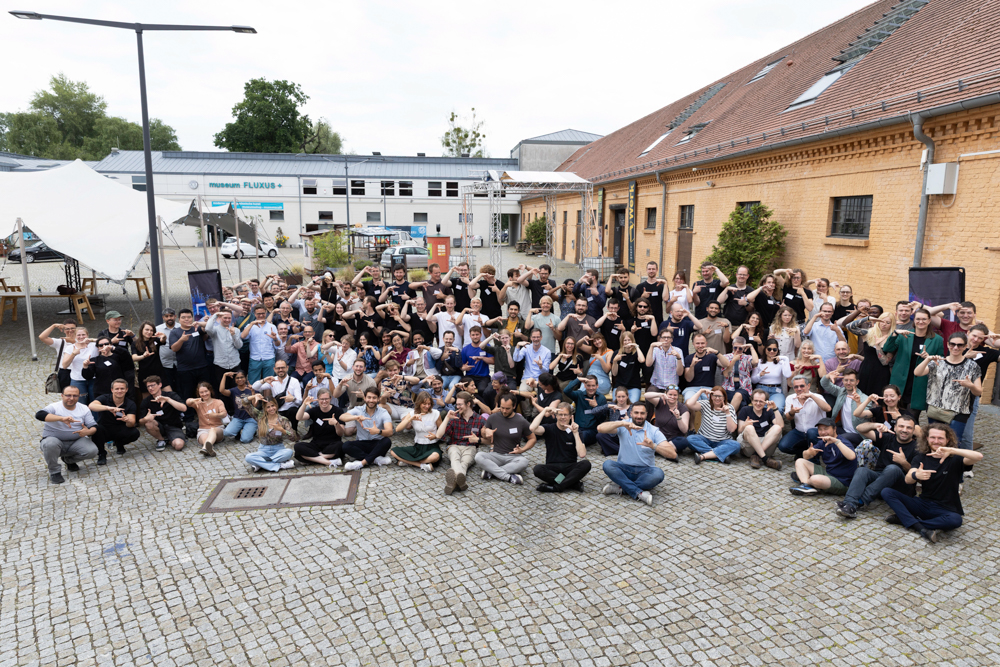
Helmholtz Imaging Conference 2025 Recap
We’ve just wrapped up another inspiring edition of the Helmholtz Imaging Conference. From June 25 to 27, researchers, developers, and imaging enthusiasts came together at the Schinkelhalle in Potsdam to share ideas, showcase innovative work, and spark new collaborations.
Highlights included thought-provoking keynotes by Robert Haase, Manuel Guizar‑Sicairos, and Laura Waller, who offered fresh perspectives on AI-powered bioimage analysis, advanced computational imaging, and computational biological imaging.
We also introduced new resources developed in the Helmholtz ecosystem, including the OMERO Instance for Helmholtz, a cloud-based platform for managing and analyzing image data, and the Helmholtz Model Zoo, an open tool for sharing and deploying AI models in imaging research.
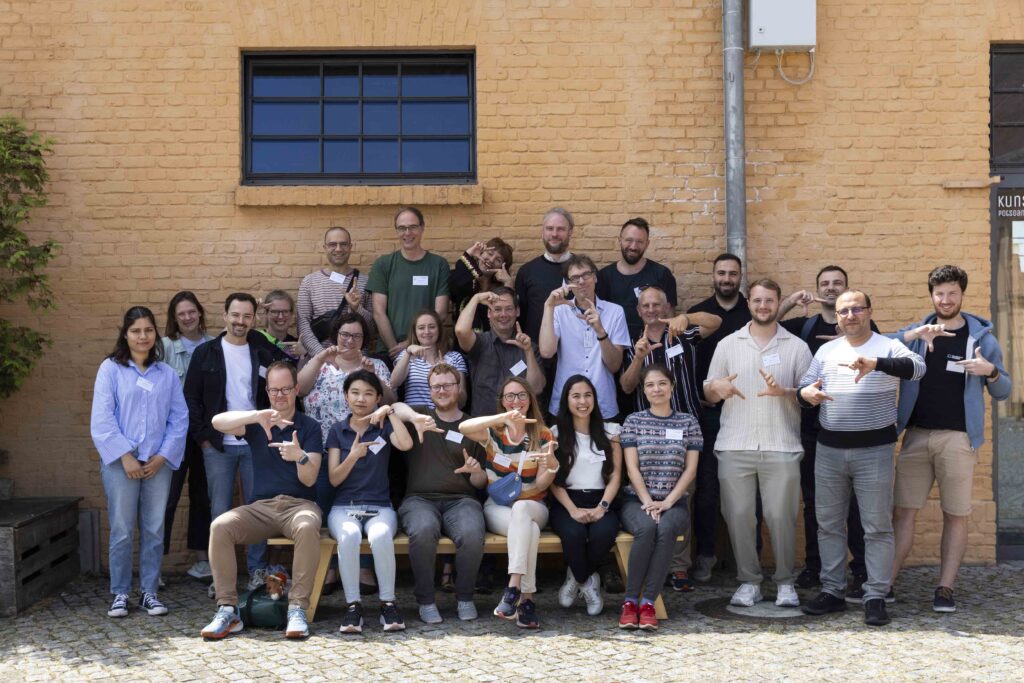
Advances and Challenges in Zebrafish Image and Video Analysis
Before the Helmholtz Imaging Conference 2025 kicked off, a focused pre-conference workshop brought together researchers and imaging experts from across disciplines to tackle shared imaging challenges in zebrafish image and video analysis. From spatial genomics to AI-driven analysis, participants showcased projects that all use zebrafish models.
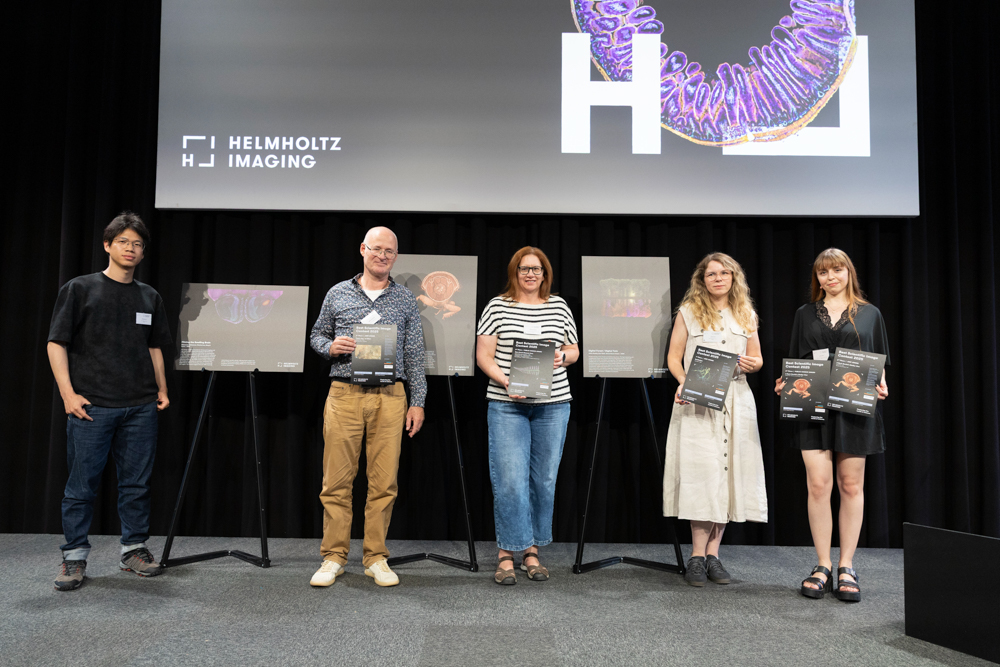
Best Scientific Image Contest 2025: Celebrating the Winners
The results are in! Helmholtz Imaging proudly presents the winners of the Best Scientific Image Contest 2025. With 104 stunning submissions ranging from cellular structures to distant planets, this year’s edition once again celebrates the power of imaging to captivate, inform, and inspire. One of the winning images will also be featured in Bild der Wissenschaft – bringing scientific imaging to a broader audience.
Explore the winning images in our virtual gallery
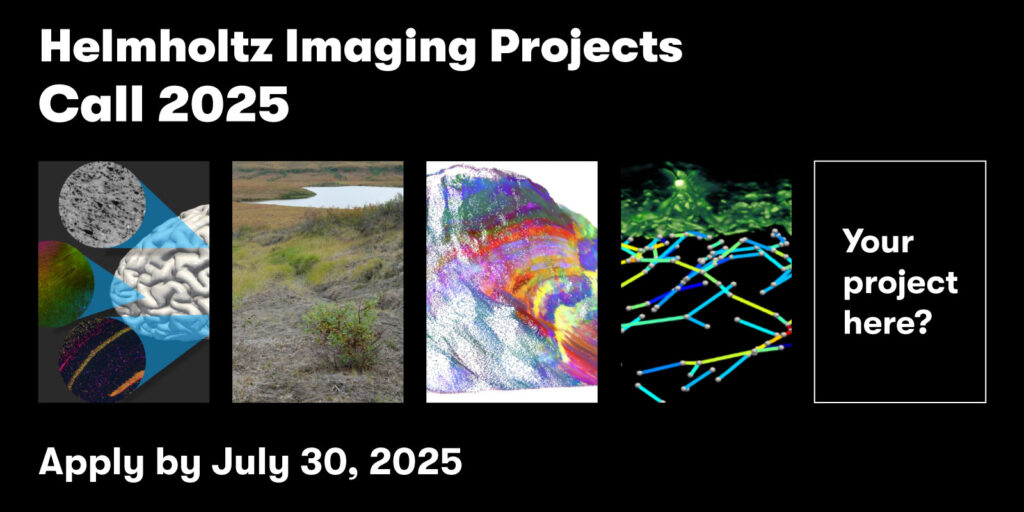
Helmholtz Imaging Project Call 2025 – Apply by July 30, 2025
The Helmholtz Imaging Project Call 2025 is open to all employees at Helmholtz Centers – and the deadline is fast approaching!
We invite bold, interdisciplinary project ideas at the intersection of imaging and data science. This year, we’re offering additional funding for reusable, cross-domain imaging solutions that are scalable, well-documented, user-friendly, and FAIR4RS-compliant.
Looking for collaborators? Connect with the community on Mattermost.
Find full details about the call
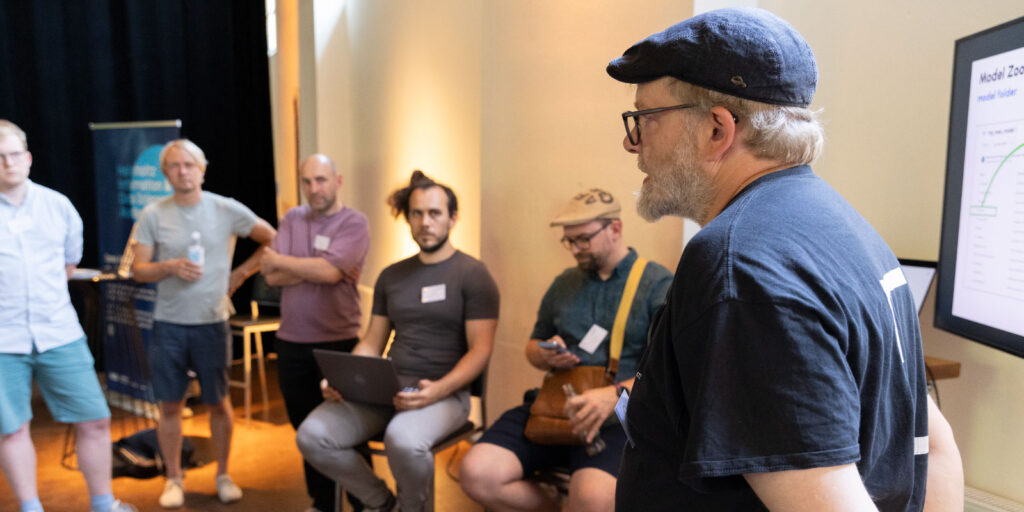

Helmholtz Model Zoo – Share, Reuse, Accelerate
The Helmholtz Model Zoo is now open to all Helmholtz members! This new platform makes it easier to share and reuse cutting-edge AI models across the community – no local hardware or deep technical expertise required.
Join us in shaping the future of open, collaborative AI for science: become an early tester and help us improve the platform.
Explore the Helmholtz Model Zoo
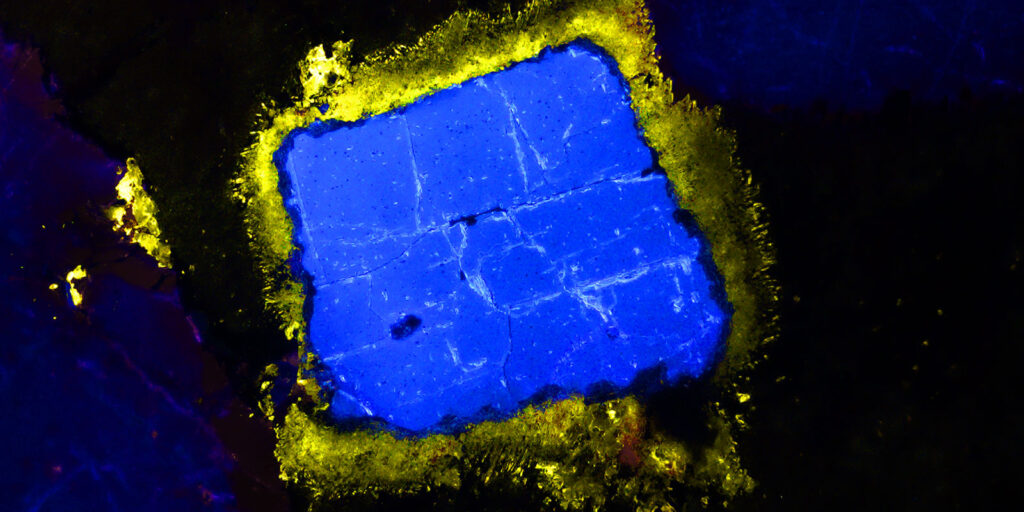
OMERO for Helmholtz: New Resource for Image Data
Managing complex scientific image data just got easier: OMERO for Helmholtz is now available! This cloud-based resource helps researchers store, visualize, analyze, and share image data securely and efficiently.
We’re especially happy to have launched this powerful resource in collaboration with HIFIS. You can now upload your images, analyze them online together with colleagues from your virtual organizations, develop and contribute plugins, and accelerate your workflows.
Discover Helmholtz OMERO & how to get started
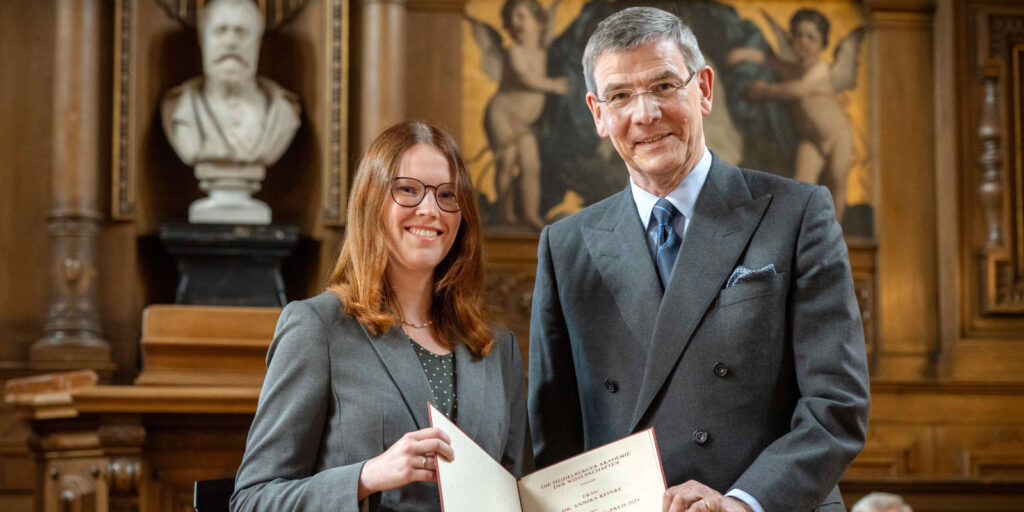
Annika Reinke Wins Hector Foundation Prize
Congratulations to Annika, Helmholtz Imaging’s DKFZ research representative, for receiving the Hector Foundation Prize 2025 for her exceptional work on “Metrics Reloaded“! The prize, endowed with €10,000, recognizes outstanding contributions by young researchers in computer science.
With Metrics Reloaded, Annika and a team of 70 researchers worldwide have set a new benchmark for quality assurance in AI-supported image analysis. Their efforts are redefining how researchers evaluate AI performance in image analysis, boosting trust, transparency, and safety in biomedical research and beyond.
Learn more, explore the online tool & meet all awardees in a short video

2nd place in Global Kaggle’s “Locating Bacterial Flagellar Motors” Competition
Our Engineering and Support Unit at DKFZ secured 2nd place, tied in performance with the winner, in Kaggle’s “Locating Bacterial Flagellar Motors” challenge, competing against 1136 participating teams and more than 45,000 submissions. By adapting the nnU-Net framework, the team automated the complex task of identifying bacterial flagellar motors from 3D Cryo-electron tomography. This significantly accelerates research in molecular biology, and advances drug development.
Learn more in this LinkedIn blogpost
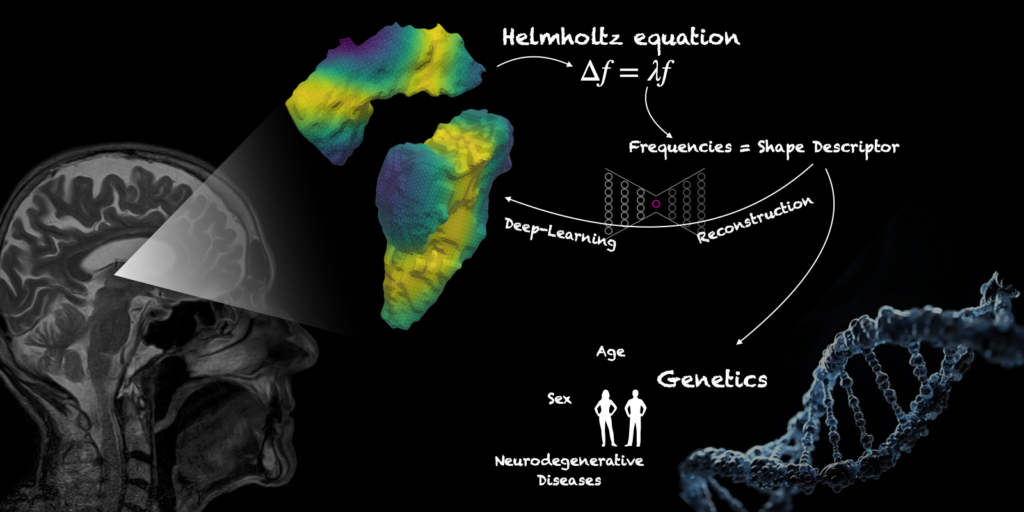
How Genes Shape the Brain – Beyond Size
A new study from Helmholtz Imaging projects BrainShapes and NImRLS links DNA variants to brain geometry, not just size. Analyzing brain scans and genetic data from nearly 20,000 individuals, the team uncovered a deeper genetic influence on the brain, not in how big it is, but in its shape. This offers new insight into brain development and early disease detection.
Explore more & access the paper
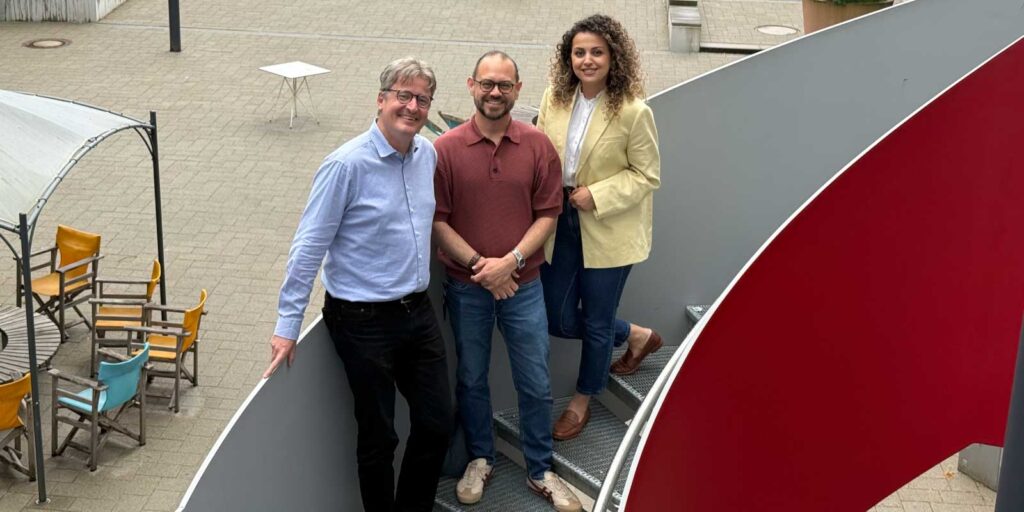
In Focus: Advancing Imaging Research Through International Collaboration
What makes international collaboration so valuable for imaging science? During his guest visits to Helmholtz Imaging and DESY, imaging expert Manuel Guizar-Sicairos shared his perspective in an interview. He talks about bridging research communities, the scientific goals of his stay, and how shared expertise accelerates innovation.
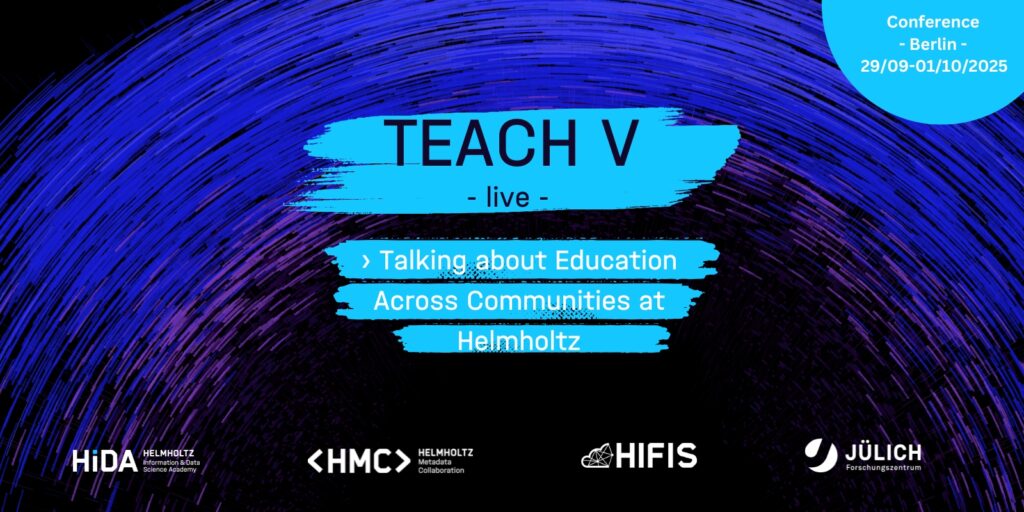
Education Across Helmholtz: Register for TEACH
From September 29 to October 1, the fifth edition of TEACH brings together educators, researchers, personnel developers and coordinators from across Helmholtz and partnering institutions to share teaching methods, best practices and insights. Hosted at the HIDA Hub in Berlin and organized by HIDA, HIFIS, HMC, and FZ Jülich, this open, participant-driven event is your chance to connect and contribute.
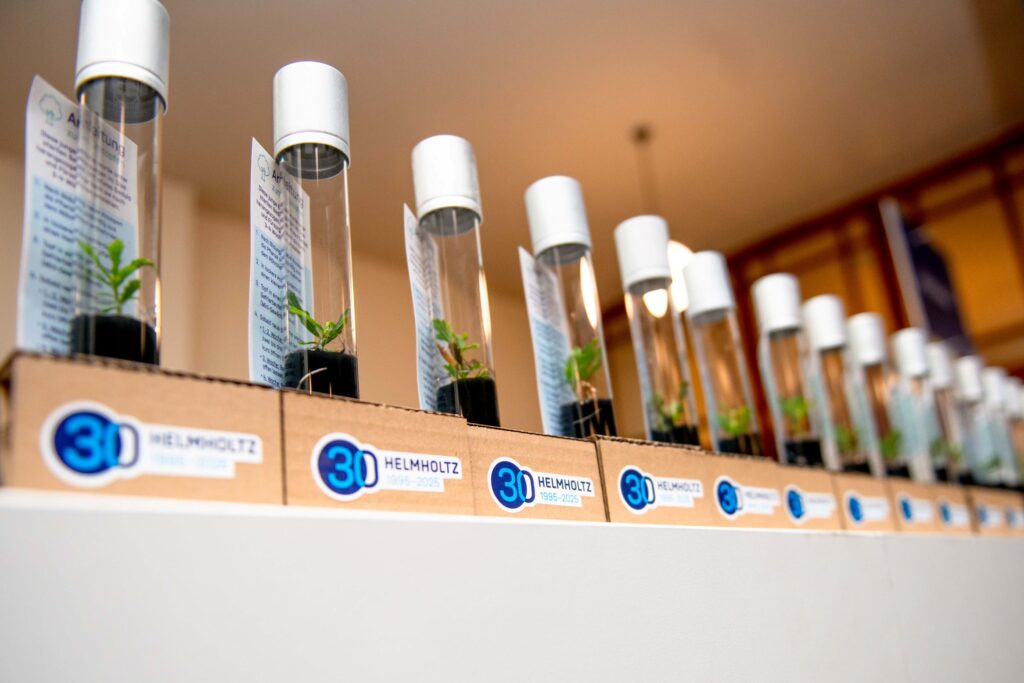
30 Years, 30 Stories – Helmholtz Celebrates a Milestone
Germany’s largest research organization, the Helmholtz Association, turned 30! To mark the occasion, Helmholtz spotlighted 30 inspiring stories of exceptional science and collaboration from across the community. We’re excited to be featured in them, too!
We’d especially like to highlight:
- Spotlight #14 – for our contributions to the Helmholtz Foundation Model Initiative, including The Human Radiome Project, AqQua and The Synergy Unit
- Spotlight #22 – as part of the Helmholtz Information & Data Science platforms
Explore all stories and discover how Helmholtz is shaping the future of research
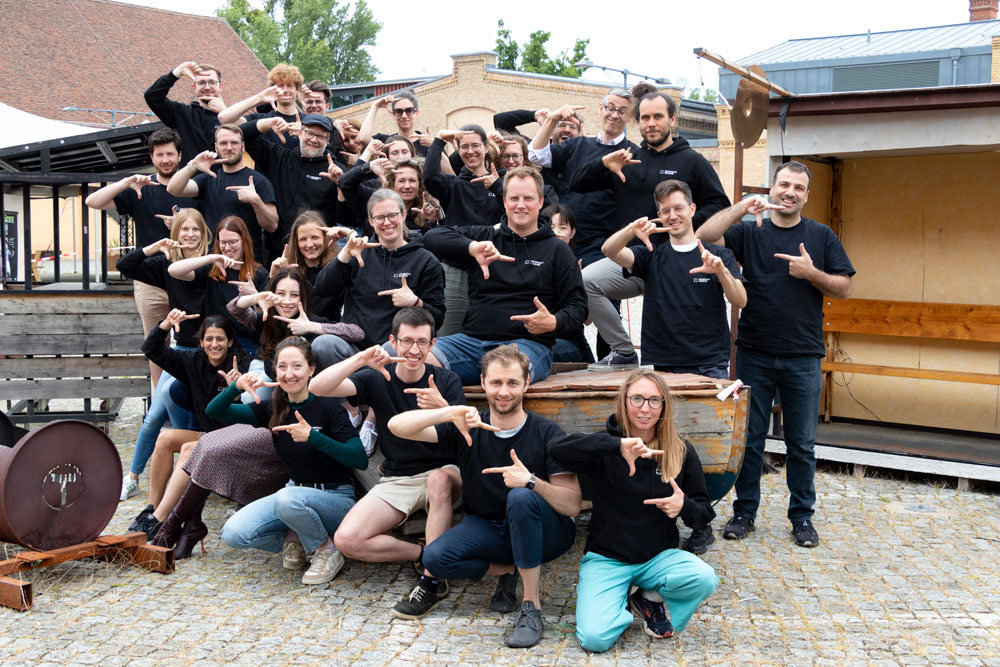
Meet Helmholtz Imaging
Say hello to Helmholtz Imaging team members at the following events:
- Meet Philipp Heuser and Hans Werners at the Data Science Symposium on September 3-4 in Geesthacht. Registration is open until August 1 (but places are limited).
- Say hello to Martin Burger at the Conference on Mathematics of Machine Learning 2025 on September 22-25 in Hamburg.
- Meet Fabian Isensee and Karol Gotkowski at MICCAI 2025 on September 23-27 in Daejeon, Republic of Korea.
News from our Partner Platforms
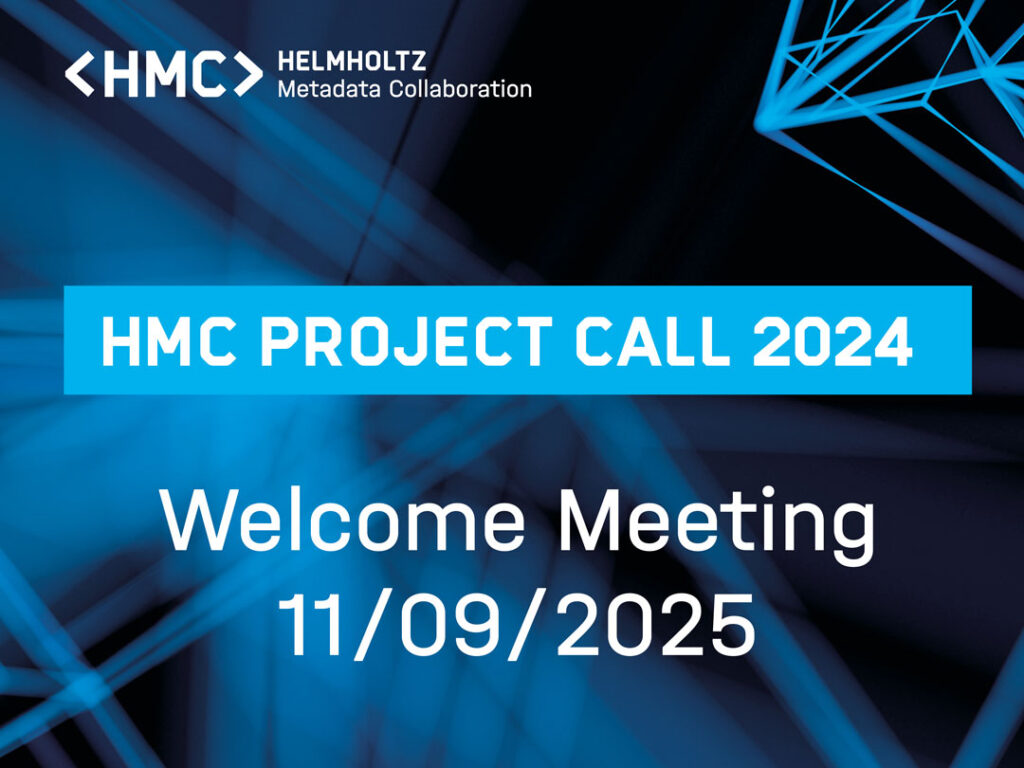
HMC
HMC Projects 2024 | Welcome Meeting
Let’s connect! On 11 September 2025, 10:00-12:00, projects funded through the HMC Project Call 2024 will present their goals and visions in short talks. Join the HMC community and get inspired!
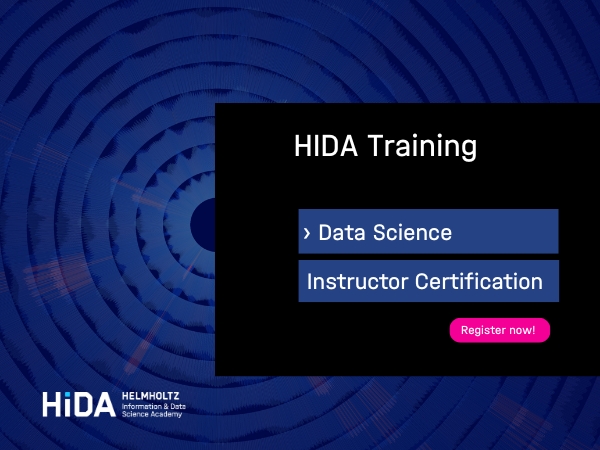
HIDA
Become a Data Science Instructor
Are you passionate about data science and eager to teach others?
HIDA is offering 15 fully sponsored seats for researchers within the Helmholtz Association to join the Instructor Training by The Carpentries.
This program equips you with proven, evidence-based teaching skills tailored for scientific environments.
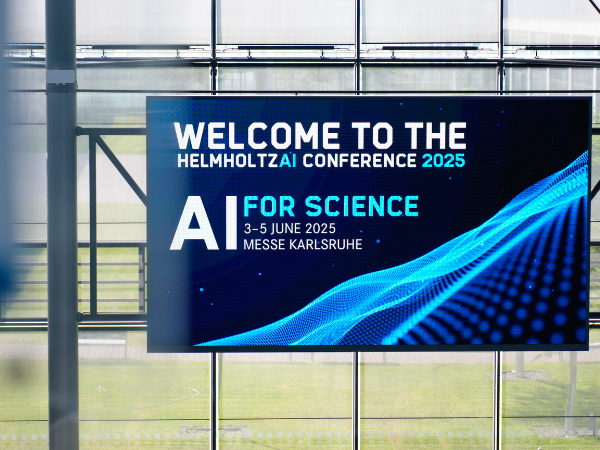
Helmholtz AI
Helmholtz AI Conference 2025 Recap
In June, HAICON25 gathered more than 400 experts in Karlsruhe for the largest Helmholtz AI event to date. The conference spotlighted how AI drives breakthroughs across disciplines – from climate to life sciences. Want to join the next wave of innovation? HAICON26 heads to Munich: save the date and explore what’s ahead!

Funding Opportunities & Awards
Helmholtz Enterprise: internal program for spin-offs from the Helmholtz Association. Apply by September 26
Scientific Networks: DFG funding to promote multi-year scientific exchange and cooperation on a topic area of choice across locations. Apply anytime.
Individual Research Grants: DFG funding to enable scientists and academics to carry out a research project on a specifically defined topic within a limited time period. Apply anytime.
End user-driven application of Generative Artificial Intelligence models in healthcare (GenAI4EU): EU funding to support activities that are enabling or contributing to ensuring equal access to innovative, sustainable, and high-quality healthcare. Application deadline: September 16, 2025
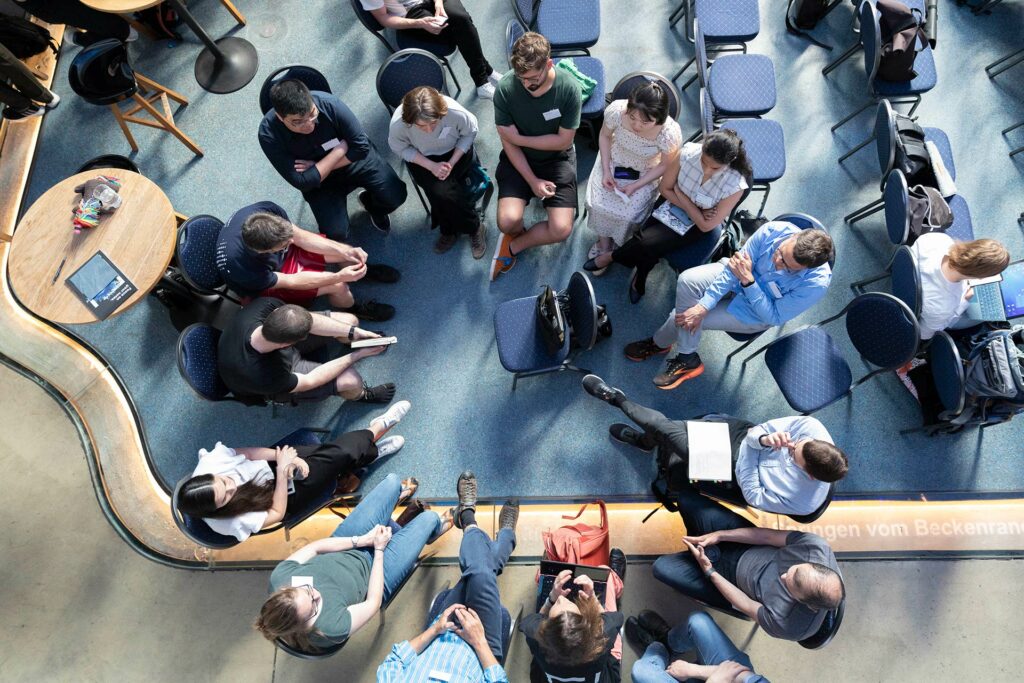
External events
- DeepMI FastSurfer / FreeSurfer Course 2025: a 2.5-day, hands-on, introductory course on state-of-the-art deep-learning methods for fast and reliable neuroimage analysis, September 17-19, 2025, information & registration by August 31
- Forum Wissenschaftskommunikation: Topic: Algorithms, Platforms, and AI: Science Communication in the Digital Age. December 3-4, 2025, Stuttgart, information
- 16th XTOP Biennial Conference on High-Resolution X-Ray Diffraction and Imaging: September 21-25, 2026, Karlsruhe, save the date.
Do you know of any imaging-related events that could be of interest to our imaging community? We’d love to hear from you. Share the details with us at Katharina.Kriegel@helmholtz-imaging.de.

New publications
SURE-VQA: Systematic Understanding of Robustness Evaluation in Medical VQA Tasks by Kim-Celine Kahl, Selen Erkan, Jeremias Traub, Carsten T. Lüth, Klaus Maier-Hein, Lena Maier-hein, Paul F Jaeger
Navigating prevalence shifts in image analysis algorithm deployment by Patrick Godau, Piotr Kalinowski, Evangelia Christodoulou, Annika Reinke, Minu Tizabi, Luciana Ferrer, Paul Jäger, Lena Maier-Hein
Discover all publications by Helmholtz Imaging
Job openings
Helmholtz Association
KIT
PhD Position in “Robust knowledge discovery of cell interactions in multichannel imaging flow cytometry and live cell imaging”
HZB
Postdoc (f/m/d) in Time-Resolved Electron Microscopy for Light-Energy Conversion in Nanoscale Materials
FZ Jülich
PhD Position – Image processing of cryo-EM data
HEREON
PhD Position in “Machine Learning and Computer Simulation”
External
AMBER (Advanced Multiscale Biological imaging with European Research infrastructures)
Postdoctoral fellowships
John Innes Centre (Norfolk, England)
Optical Microscopy Support Specialist